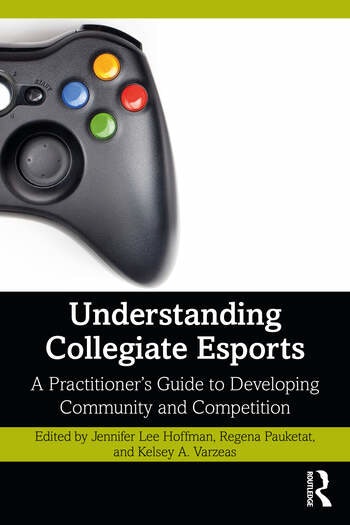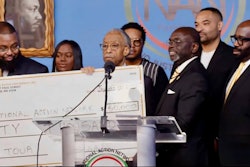
A new book, Understanding Collegiate Esports: A Practitioner’s Guide to Developing Community and Competition, edited by Dr. Jennifer Hoffman and graduate students Regena Pauketat and Kelsey A. Varzeas, offers a better understanding of esports, advice on building a programs with equity that support mental health, and shares how esports can amplify the work of Historically Black Colleges and Universities (HBCUs).
“Esports create an amazing opportunity to do things differently and to innovate,” said Hoffman, who is also an associate professor of educational foundations, leadership and policy at the University of Washington. “If you’re thinking about esports on your own campus, I think it’s really an opportunity for us in higher education to do things in new ways.”
At the turn of the century, the connection between higher education and video gaming was a bit more like the “wild west,” said Hoffman, as schools had very little consistency in how competitive their esports programs could be and what kind of supports or services they had to offer.
“That early wave has passed, and now it’s moved into this more mature phase—there’s a lot more acceptance and energy, a lot of institutions are putting time and resources to building esports on campus,” said Hoffman. “It’s an amazing entry point into tech careers. Video games and game play is so much a part of our lives—in your student population, everyone is playing some kind of game, whether it’s on their mobile or PC or console—now, it’s thinking, how [does video gaming] fit into our campus life?”
Many colleges, particularly smaller ones, have used esports as a way to recruit and retain new students. Currently, 175 colleges and universities offer varsity esports programming and are members of the National Association of Collegiate Esports. However, esports have no official governing body, like the National Collegiate Athletic Association which oversees college sports, and the field has remained, like the larger technology industry as a whole, predominately white, east Asian, and male.
Within the past three years, HBCUs have opened their own doors to esports opportunities and growth, thanks to the efforts of people like Christopher Turner, esports head coach at HBCU Southern University and A&M College in Louisiana. His program connects students from preschool through Ph.D. to gaming, opening them up to careers in science, engineering, math, and technology (STEM), as well as helping them compete for scholarships. The organization Cxmmunity works to increase participation of minoritized youth in esports. It helped establish an HBCU Esports League competition on Twitch, a game streaming platform.















